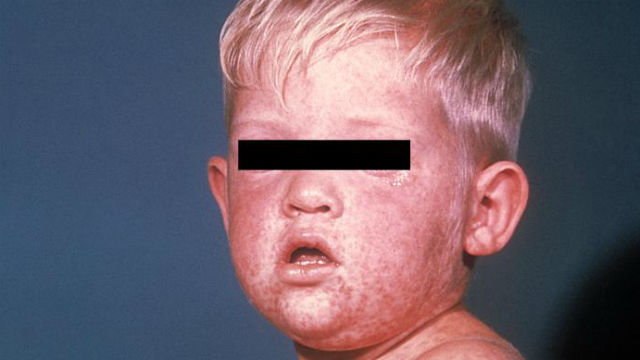
San Diego County health officials have confirmed a 13-month-old child presented with a case of measles, the third in the region this year.
This year’s measles cases, all of which occurred in people who traveled overseas, are the first such incidents in the county since 2019. County health officials, who made the announcement Tuesday, say none of the cases are connected.
The first case involved an unvaccinated infant, while the second appeared in a 47-year-old resident.
The unvaccinated child in the latest case may have recently exposed others at:
— Children’s Primary Care Medical Group, 844 Jackman St., El Cajon on May 12, from 9:10 a.m. to noon; and
— Rady Children’s Emergency Department, 3020 Children’s Way, 1st Floor, on May 13, from 10:30 a.m. to 12:45 p.m.
County health officials are working with employees of Children’s Primary Care Medical Group in El Cajon and Rady Children’s Hospital to identify and follow up with patients and staff.
County Public Health Officer Wilma Wooten said in a statement,
“Measles is a very contagious disease that can be spread easily by coughing, sneezing, or being in the same room with an infected person,” said County Public Health Officer Wilma Wooten in a st atement.
“Anyone who was at any of the specific locations and at the dates and times listed above should watch for symptoms and call their health care provider if they show any signs of the disease.”
According to county health officials, measles develops seven to 21 days after exposure. Early symptoms include fever, cough, runny nose and red eyes, with a red rash usually appearing one to four days after early symptoms appear.
A person is considered contagious four days before and four days after the rash appears. The rash usually starts on the face and head and proceed downwards, then to the hands and feet, and it will fade in the same order it began.
Anyone who develops symptoms is advised to call their medical provider in advance instead of showing up in person unannounced. With advance warning, infection control measures can be put into place to prevent exposure to others.
“The best way to prevent measles is by getting the measles vaccine,” said Wooten.
“With measles outbreaks occurring in several countries, it is very important that all international travelers get vaccinated. Infants between 6 and 12 months of age who travel should get one dose, and travelers over 12 months of age should get two doses at least four weeks apart.”
Officials said complications from measles are more common in children under 5 years of age or adults over 20. Death can occur from severe complications, and the risk is higher among younger children and adults.
While there is no known treatment for measles, health officials recommend bed rest, fluids and fever control.
City News Service contributed to this report.
